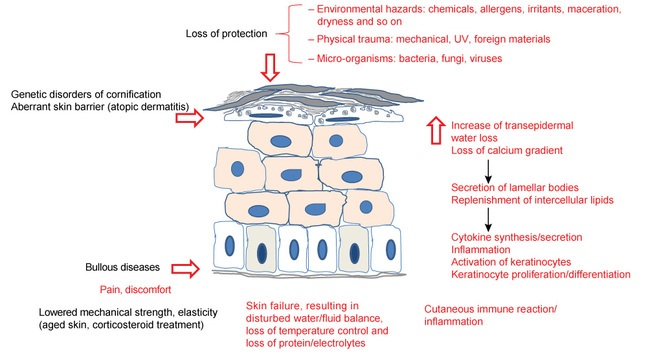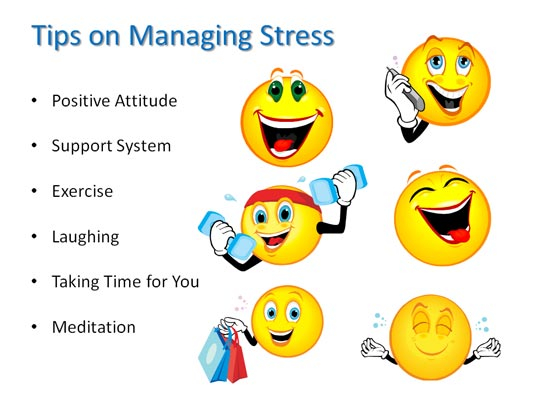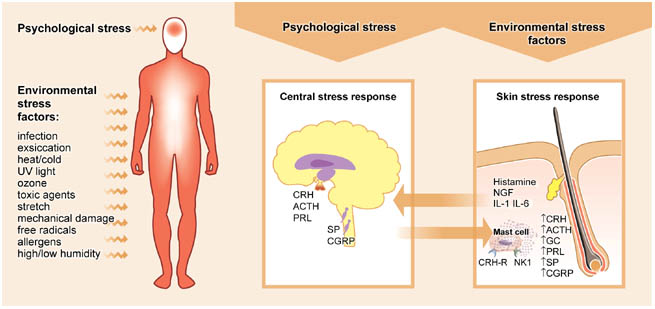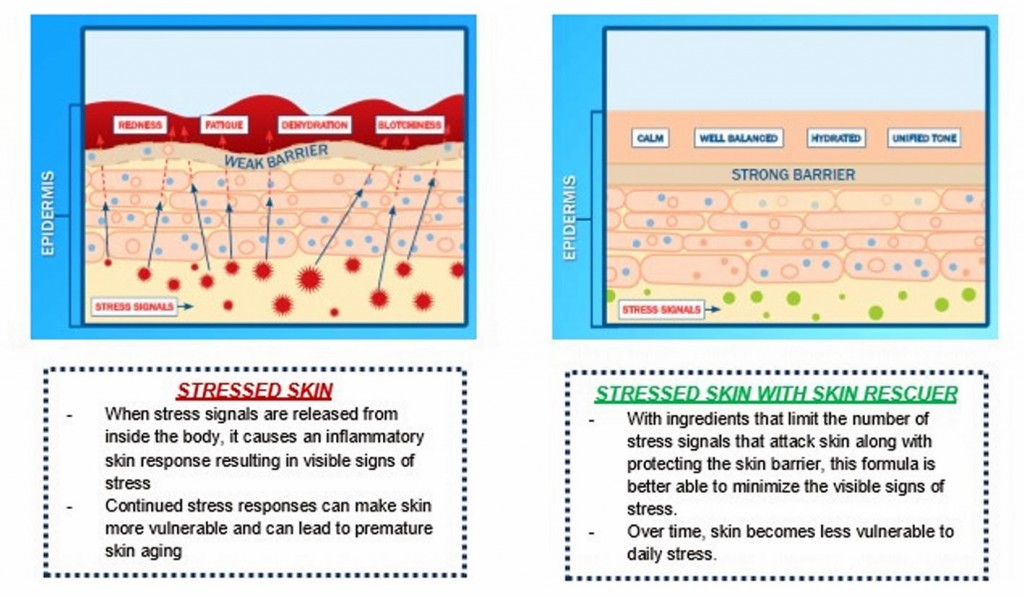The 9 Effects Of Stress On Your Skin By Isabel’s Beauty Blog
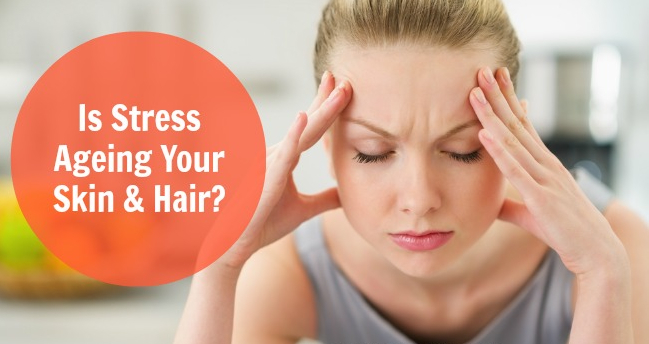
It has been said that stress can manifest itself on one’s appearance in many ways, but primarily by making the skin more sensitive and more reactive.
For example, stress maybe linked to psoriasis or rosacea, result in acne lesions that are more inflamed and more persistent, brittle nails and ridging of the nails, hair loss, hives, and excessive perspiration.
Stress also is a known trigger or can be a worsening factor for fever blisters, psoriasis, seborrheic dermatitis and has even been shown to impair skin barrier function and dehydrate the skin — allowing more irritants, allergens, and infectious agents to penetrate the skin and cause problems.
Beyond the direct physiological effects of stress, people under stress also tend to neglect or abuse their skin. For example, they often lack the energy and motivation to adhere to their skin care regimens, and there also might be signs of stress-related habits — such as scratching, pulling or rubbing — that can exacerbate issues.
On a microscopic level, stress reduction can decrease the release of pro-inflammatory stress hormones and chemicals. For example, release of neuropeptides (or stress chemicals released from the nerve endings) can be reduced with stress management techniques. This often results in skin that looks and functions better.
Stress does a lot more than make us feel awful — it can wreak havoc on your skin. We’re getting some expert insight into just what it does to your complexion and how to reverse the effects.
Acne breakouts
Acne breakouts are stressful enough — especially when they happen the day before a date or other big event, but it turns out stress itself could be causing those pesky blemishes. “Overproduction of the stress hormone cortisol sets the stage for acne flare-ups by promoting oily skin and interfering with your body’s ability to regulate inflammation.” So what’s a girl to do? To calm your complexion, she suggests using an organic skin cream that contains natural anti-inflammatories such as green tea and chamomile, as well as the natural mineral sun block zinc oxide, which reduces oiliness.
Dehydration
Dry skin? All those long (stressful) days at the office could be to blame. “Stress interferes with the ability of the skin to retain moisture.” If you’ve been dealing with more stress than you’d like — and it shows, switch to a rich cream that contains plant-derived moisturizers such as aloe vera, hyaluronic acid, shea butter and avocado oil. “These will help hydrate and lubricate the skin, improving not only the appearance of the skin, but also its ability to function as a natural shield against bacteria, irritants and toxins.”
Reduced collagen production
Stress can also be the enemy of youthful-looking skin, so if you want to turn back the clock, you’ll need to find a way to minimize stress. “Increased levels of another stress hormone, epinephrine, constricts blood vessels, reducing the flow of oxygen and nutrients that skin needs to manufacture collagen.” If you want to combat the effect of stress on your skin, move your face, she advises. “One of the best ways to restore healthy circulation is a program of facial exercises that incorporates aerobic techniques.”
Neglect and abuse of skin
If you’re overloaded with frustrating demands and a never-ending to-do list, you may find yourself going to bed with your makeup on, not bothering to moisturize and even indulging in bad habits like picking at your skin. To get your skin back on track, treat yourself to a professional facial. “Make sure the salon you choose provides a soothing atmosphere and plenty of TLC. With a little pampering to reduce your stress level and a revitalized complexion, you’ll feel motivated to resume a disciplined skin care routine.”
Dull and troubled skin
What is happening with your digestion can have a big impact on what is going on with your skin. When stressed, the body’s digestive system can go a bit haywire because the blood is directed away from the digestive system and everything becomes. Unbalanced digestion has been found to lead to problem skin such as dryness, oiliness, blemishes and dullness, or sometimes a combination of all of these issues. Problems such as eczema and dermatitis can occur, too.
Solution:
Boost your circulation with at least three sessions of cardiovascular exercise a week. This will also help you cope better with the stress itself. Include plenty of alkalising foods in your diet, such as apple cider vinegar, which makes a great salad dressing, green leafy vegetables and non-animal protein sources. Remember to chew your food well as this helps to alkalise it further before you ingest it. You can also consider taking probiotics, which can help balance the environment in your gut.
Lines and wrinkles
No one likes to talk about wrinkles, let alone face them in the mirror. Ensure your skin stays smoother, longer by minimizing stress. “Cortisol also causes blood sugar levels to spike. The excess sugar molecules in your bloodstream can bond to the proteins in your skin’s collagen fibers causing them to harden and crack and resulting in loose skin and deep wrinkles.” To maintain proper blood sugar levels and keep skin looking youthful, Isabel recommends avoiding refined carbohydrates (e.g. white bread, junk food) and eating more vegetables, whole grains and beans.
There are two ways stress contributes here. Firstly, as previously mentioned, stress can cause dry and problem skin, and dryness and dehydration are the leading causes of fine lines and wrinkles. Secondly, the facial expressions that typically come with stress can cause deep, dynamic lines that last far beyond the stressful period. We’re talking frown lines, crow’s feet from squinting at your computer screen and deep lines that run from the nose to the mouth and the chin.
Solution:
Practice mindfulness and meditation. Be aware of the moment you are in. If you feel yourself frowning, or your mouth is turned down, step away from the source of your stress, be it your computer screen, the phone or simply the in-tray on your desk. If possible, take 10 minutes to give yourself a facial massage. Press your fingertips into the middle of your eyebrows and work them all the way around your orbital bones to help relax the muscles that cause the expressions. Relax your mouth by saying your vowels in an overly accentuated manner up to 10 times. This will also help relax your jaw and prevent you from clenching and grinding your teeth. Even if you don’t feel like smiling, force yourself to do it. Research suggests the very act of smiling, even if it’s fake, can improve mood and induce relaxation.
Lack of sleep
Stress causes sleepless nights. This will directly impact on the appearance of your skin. Just one night of tossing and turning will draw the freshness from your face, and if it becomes an ongoing problem, it can affect your skin’s regeneration functions, resulting in dullness, fatigue, under-eye circles and bags and bloodshot eyes. It will also make you feel less like exercising, which can cause weight gain.
Solution:
Put good sleep practices in place. Save vigorous exercise for earlier in the day, rather than just before bed. Before bed, take 15 to 20 minutes to do some gentle stretches and deep breathing to ease the tension of the day. Make sure you have clean sheets made from natural fabrics, allow fresh air to circulate through your bedroom and remove all devices such as smartphones or tablets. Don’t have a TV in your room – it will stimulate your brain and make sleeping soundly even harder. Avoid caffeine after 2pm. You can also consider playing meditation CDs to relax you.
Bad habits
Stress can trigger the onset of unhealthy habits such as excessive alcohol consumption, smoking and comfort eating. Again, this can make you less determined to exercise and can create an unhealthy cycle, where you rely on these things to help you relieve stress. This can lead to bad skin and weight gain, as well as other health problems.
Solution:
Before you reach for a bottle of wine, cigarette or chocolate, take a walk and get some fresh air. Swap alcohol for a juice made of green, leafy veggies. Practice meditation and keep positive and uplifting affirmations on your office wall or the fridge to deter you from bad habits.
Heavy jaw
Grinding teeth and clenching of the jaw are common symptoms of stress. Unfortunately, these habits can cause the jaw muscles to work overtime. This can result not only in damaged teeth, but also a heavier than usual jawline, as the muscles become larger with the grinding action.
Solution:
Speak to your dentist about wearing a special mouth guard if you grind your teeth in your sleep. A reputable cosmetic or plastic surgeon can also inject a muscle-relaxing product into the muscles to prevent you grinding your teeth. You can also try alternative practices such as kinesiology to help ease the tension. Acupunture is what I use and it works miracles. Chiropractor work is another choice I usually resource to for relaxing, Yoga and Gi Gong one of my favorites.
Detoxifying Your Life: Stress-Detox Secrets By Dr Perricone
Stress is probably the greatest age-accelerating precipitator there is. As a dermatologist, I can also unequivocally state that stress is also the precipitator of a great many skin problems; in fact, these problems often have their very roots in the psyche.
This can include everything from acne to eczema, rosacea to psoriasis and worse. Unfortunately normal day-to-day interactions with our partners and children can be stressful – no matter how much we love them. Of all of the physical conditions we experience, stress is also the most deadly.
Many circumstances create stress in our daily lives. Arguing with family, friends or colleagues, not getting enough sleep, worrying, working too hard, or even playing too hard can all create stress. Weekend warriors, who try to make up for a week of inactivity by spending hours engaged in strenuous physical sports, raise their stress levels to an unhealthy degree. Any activity that is practiced without moderation can lead to a stress response.
To help reduce the negative effects of stress, I recommend following the anti-inflammatory diet and taking targeted anti-inflammatory nutritional supplements. I also suggest implementing these simple strategies:
Make sure that you get enough sleep
Try to minimize situations that create stress in your life
Don’t drink coffee. Coffee contains many organic acids which can elevate our cortisol levels. It’s important to avoid spiking these levels, as it can be toxic when large amounts of cortisol are circulating in our system for prolonged periods of time. It is not specifically because of the caffeine because you can drink a cup of decaffeinated coffee at 8 AM and your cortisol levels will still be measurable at 10 PM –the same effects as a cup of regular coffee.
Set aside fifteen or twenty minutes a day for meditation or prayer. It is a well- established fact that people who do this have significantly lower cortisol levels. Long term benefits include keeping our skin clear, maintaining a healthy immune system and preventing age-related diseases, such as diabetes, cancer or cardiovascular disease.
Consider learning some simple Yoga exercises. Yoga is an outstanding stress reducing discipline and can lower cortisol levels.
Substitute green tea for coffee.
Get out in nature—fresh air, trees, blue skies, all contribute to our physical and mental well-being.

